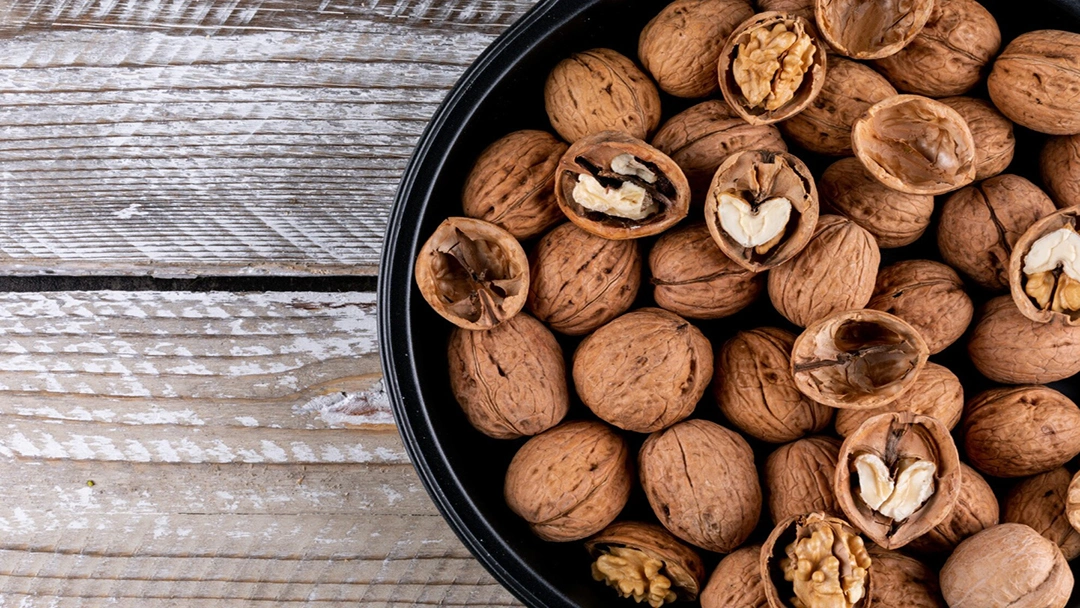Primal Improves Blood Sugar and Insulin Resistance
High blood sugar levels can lead to insulin resistance and diabetes, which cause many chronic diseases, such as cancer, heart problems, stroke and brain issues, kidney problems, nerve damage, etc.
To avoid these health problems, we should limit carbohydrate intake, which helps us prevent type 2 diabetes—carbohydrate intolerance caused by insulin resistance [1] [2].
Balancing macronutrients is another critical step in glycemic control, especially in type 2 diabetics [3].
Also, studies indicate that low-carb diets can lower HbA1c and antihyperglycemic medications in patients with type 2 diabetes and insulin resistance [4] [5].
Different studies on the impacts of low-carb diets on metabolism found that minimizing carbs helps reduce insulin levels and hepatic insulin resistance [6] [7].
A 2003 study on 132 individuals with obesity trying a low-carb diet suggested that the diet improved insulin sensitivity and decreased insulin levels, fasting blood glucose levels, and triglycerides [8].
A 2004 study on two groups of 60 overweight individuals trying a low-carb, high-fat diet and a low-fat diet showed the low-carb group lost 1.8 times more weight and experienced better results in waist-to-hip ratio and triglycerides [9].
Primal Reduces Inflammation
Inflammation can cause chronic diseases, such as autoimmune conditions, cardiovascular diseases, gastrointestinal disorders, and lung diseases [10].
A 2014 study comparing the impacts of low-carb and low-fat diets on inflammation found that the low-carb diet can help glycaemic control and subclinical inflammatory state in type 2 diabetes [11].
Another 2024 study on the effect of carbohydrates on inflammation-related heart problems found that chronic inflammation is higher in individuals consuming more carbohydrates [12].
[cta-meal-plan]
Primal Improves Autoimmune Conditions
A 2023 study on the effect of low-carb diets on multiple sclerosis (MS) demonstrated that such diets can positively affect MS, neuroprotective factors, cellular metabolism, and disease outcome [13].
A 2022 study on the modulatory impacts of low-carb diets on immune conditions indicated that these diets can significantly improve patients’ condition [14].
Primal Alleviates Cancer Symptoms
A 2017 study on the effect of low-carb ketogenic diets on cancer indicated the positive effects of these diets on cancer symptoms in animal samples [15].
A 2021 study on the therapeutic effects of low-carb diets on cancer showed evidence that such diets can be used in the treatment of cancer and suggested that they can have positive effects on treatment enhancement [16].
A 2024 study on using low-carb ketogenic diets to treat cancer showed that through ketosis, low-carbohydrate diets can provide an unfavorable metabolic condition for cancerous cells to slow their development and expansion [17].
Primal Helps Brain and Mental Function
A 2021 study on the effect of low-carb ketogenic diets on mental disorders showed their favorable impact on psychiatric disorders [18].
A 2022 review on the impacts of ketosis on brain function found that the secretion of ketones as a result of lowering carbohydrates can provide cognitive benefits and prevent Alzheimer's disease and cognitive impairment from progression [19].
Also, minimizing carbohydrates can help stabilize energy levels and improve cognition and focus.
[cta-gocarnivore-plans]
Primal Improves Anxiety, Depression, and Sleep Disorders
A 2023 systematic review exploring the impacts of low-carbohydrate diets on mood and anxiety revealed positive effects of these diets [20].
A 2021 study analyzing the relation between low-carb diets and psychological disorders found that low-carbohydrate diets can decrease the risk of depression [21].
A 2020 study on the links between a low‐carbohydrate diet and sleep status, depression, anxiety, and stress indicated that participants consuming fewer carbohydrates had better sleep and a lower incidence of mental disorders [22].
Primal Improves Heart Health
A 2014 study exploring the effects of low-carbohydrate diets on cardiovascular risk factors indicated that low-carbohydrate diets can help reduce weight and improve cardiovascular risk factors [23].
Another 2020 meta-analysis revealed that low-carbohydrate diets can positively impact cardiovascular risk factors, which help manage various heart problems [24].
A 2023 randomized controlled trial pilot study on the effects of low-carb diets on heart failure symptoms in patients with diabetic cardiomyopathy found that a low-carbohydrate diet can boost weight loss in these patients [25].
Primal Increases Energy Levels
A 2018 randomized trial found that decreasing the consumption of carbohydrates can boost energy expenditure during weight loss, which can positively affect obesity treatment, especially in those who have high insulin secretion [26].
[cta-meetings]
Primal Boost Digestive Function
A 2021 study on the short-term and long-term impacts of low-carbohydrate diets on metabolism confirms that low-carb diets provide different metabolic benefits [27].
A 2022 study exploring the effects of combining physical activity with low-carb diets found that mixing low-carbohydrate diets with exercise training can have positive effects on gut physiology [28].
Primal Supports Weight Loss
Different studies provide evidence regarding the positive effect of low-carbohydrate diets on weight loss. These studies found that these diets lead to weight loss through the carbohydrate-insulin model.
This model shows that decreasing insulin levels can improve cardiometabolic function and boost weight loss [29] [30].
Also, a 2006 study found that low-carbohydrate diets are effective methods to induce weight loss for up to one year [31].
A 2013 study comparing low-carbohydrate and low-fat diets indicated that very low-carb diets can lead to more significant weight loss than low-fat diets in the long term [32].
So, according to these findings, the Primal Diet, a low-carbohydrate and ketogenic eating pattern, can help a wide range of individuals with various health conditions.
[cta-meal-plan]
Is the Primal Diet Good for You?
If you are suffering from any of the above health problems, including cancer, autoimmune conditions, high blood sugar levels, insulin resistance, inflammation, anxiety, depression, sleep disorders, brain problems, and cardiovascular issues, the Primal Diet can be good for you.
However, it’s wise to consult a healthcare professional before starting the diet to ensure that going low-carb aligns with your health status, body needs, and goals to avoid possible side effects.
Possible Side Effects
Decreasing carbohydrate intake to about 50 grams a day can cause headaches, nausea, diarrhea, and constipation in some individuals as the body tries to adapt to low-carb eating.
To avoid these symptoms, aka keto flu, you can drink lots of water to stay hydrated, and keep your electrolytes balanced. You can also add salt to your water to absorb sodium, potassium, and magnesium, which can help electrolyte balance.
But don’t worry; these symptoms are temporary and usually fade away in a few days or weeks, depending on your metabolic flexibility. You can always seek medical help if you experience prolonged side effects.
However, it’s better to avoid the Primal Diet if you are among the following sensitive groups, or you can start it with the direct supervision of healthcare specialists.
[cta-gocarnivore-plans]
Who Should Avoid the Primal Diet?
- Individuals with Type 1 Diabetes: These patients must start the diet after consulting healthcare professionals because increasing fat and decreasing carbohydrates directly affect insulin and blood sugar levels.
- People with Kidney Disease: Those with underlying kidney problems must watch their protein intake, as high-protein diets can pressure damaged kidneys.
- Those with Liver Disease: Increasing fat consumption can pressure the liver, which must be considered if you have pre-existing liver disorders.
- Pregnant or Breastfeeding Women: An elimination diet may not be suitable for pregnant or breastfeeding women unless a doctor approves it.
- Those with Gallbladder Issues: If you are dealing with gallbladder issues or have it removed, you may have difficulty digesting high levels of fat.
- Those with Nutrient Deficiencies: Individuals with nutrient deficiencies or similar disorders need to consult their physicians before starting elimination diets.
Summary
So, because of all these Primal Diet benefits, you can start it to improve your health and manage weight. Here, you can learn how to start the Primal Diet. But please remember to transition gradually, be patient, and consult a healthcare provider before starting.






























